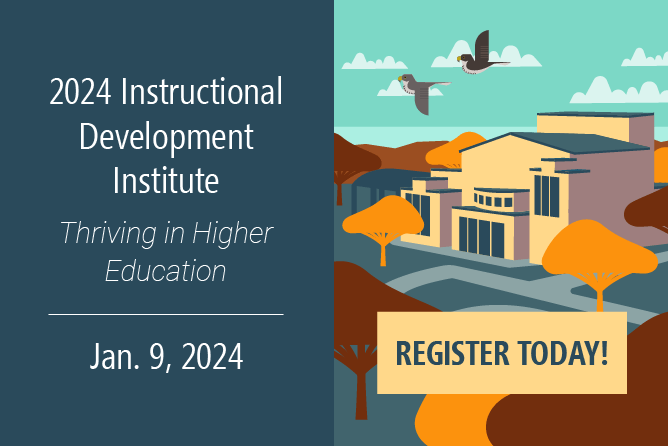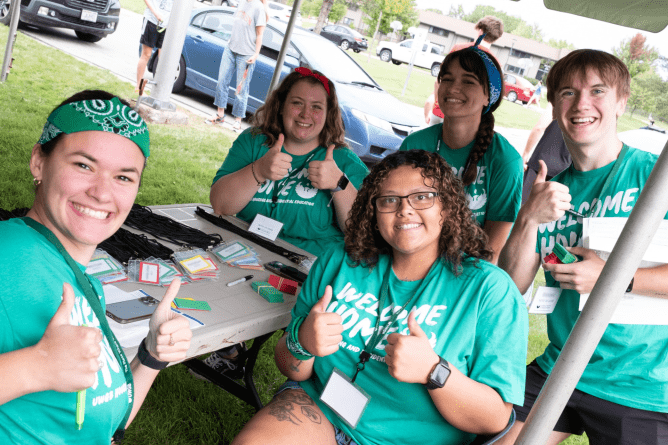Article by Pamela Rivers
The semester is well under way. Your students have taken their first exam. Some are active and excelling. Others have stopped coming to class or are not completing the assigned readings. Welcome to the end of September.
Maybe you thought this time it wouldn’t happen. Everyone was eager and excited and answering your questions for the first few class sessions. Now, however, you are right back to encountering some disengaged students doing what feels like the bare minimum, and it’s eating away at your passion for teaching. Is this the fate for our classes, or are there more or different things we can do to reach students?
First, to be clear, engaging students is not magic, and although it should be informed by science, in many ways it’s also an art form. Like all art, some of it appeals to us and some of it doesn’t. No one can promise you a room full of fully engaged students who always turn in their homework, laugh at all your jokes, and come prepared every session. No trick or strategy works for every person, every time. There are, however, certain strategies you can employ to make it more likely your students will listen, attend, and want to do well, for you and for themselves.
Relationships Matter
In “Culturally Responsive Teachers Create Counter Narratives for Students”, Zaretta Hammond argues that relationships can be the “on ramp to learning.” She says that relationships can be as important as the curriculum. One research study cited in Relationship-Rich Education showed that alumni who had a faculty member who cared about them as a student felt more connected to their current jobs. Unfortunately, only 27% of graduates surveyed had someone in that role. This powerful research shows that developing relationships with our students not only engages them, but can also lead to their success down the road.
That is compelling research, and it can take a lot less than you might imagine to make a real difference in the lives of your students. Students want to know that you care, and they want to feel welcome in your classroom. Research suggests that colleges and universities need to invest in a “relentless welcome of their students,” (Felton and Lambert, 2020) but faculty can lead the way in their individual classrooms by integrating activities that build relationships and encourage engagement.
Getting to Know You Surveys
Before class starts, whether online or face-to-face, send out a “getting to know you” survey through Canvas. This survey can ask questions specific to your discipline, but it is also a place to show interest in your students and what might hold them back from being successful. You could ask about your students’ pronouns, how they prefer to be contacted, any worries they are having about your class, and any specific needs they have. You can find a lot out about a student by simply asking. Need a ready-made survey? Reach out to CATL to get a copy of our Canvas Template, which includes a sample survey.
Ice Breakers
When you hear the word “ice breakers,” you may groan. The truth is a silly, active icebreaker is a wonderful way to get face-to-face students moving and is a start to building classroom community (Sciutto, M.J., 1995). A people bingo game, for example, can help get students talking and will help them get to know each other. If you are teaching online, there are plenty of icebreakers you can do asynchronously, including video introductions or a game like two truths and a lie.
Class Norms
Developing a set of agreed-upon class norms (expectations or guidelines), both for your students and you, that everyone is involved in creating goes a long way toward building both trust and community. Next semester, take part of your first class session to have your students help you develop norms. If you need some ideas for what these class expectations might look like, check out the “Trust” section of this CATL toolbox article.
Make It Matter
Find ways to tie your assignments to students’ goals, lives, and futures. If you ask me to spend 2 hours every week looking up dictionary definitions for words I’ve never heard of for a random quiz that doesn’t seem to have any bearing on what I’m supposed to be learning in your course, I am unlikely to be motivated to keep spending my time looking in the dictionary. If, on the other hand, you explain to me the importance of the words I’m learning, how they will be useful in my next class, and even how they may show up on a licensing exam for my future career, my motivation changes.
Unplanned Conversations
In face-to-face or synchronous online courses, you can use the time before class or while students are working to chat with those students who are unoccupied. Mention something you liked about their work, ask how their weekend was, and show a genuine interest in them. You never know what you might learn in these conversations. It may not lead to anything, or it may lead to a student feeling seen. Establishing a friendly and open line of communication with students in this way also makes it more likely that they will feel comfortable coming to you if they have a question or issue in the class.
Give Your Students a Chance to be Successful
As you build up to the major coursework in your class, have small, low-stakes assignments that give them all an opportunity for success and to receive formative feedback. As students get a small taste of success, they will want to feel that more.
Use Your Students’ Names and Pronouns
Another way to make a student feel seen is by how you address them. Ask your students what they would like to be called and what pronouns they use in a “getting to know you survey” or some other activity at the start of the semester. If you are teaching a face-to-face class and are good with names, try to memorize their names and pronouns during the first few weeks and use them frequently. If you are teaching online or have more students than you can remember for a large face-to-face roster, ask students to complete the name pronunciation activity created by CATL to help instructors with names. In face-to-face classes, also consider having students create name tents that they can pull out for class use. These small steps show that you care about making them feel comfortable in class, and help students learn the names of their peers as well.
Engagement is Key for Student Success
There are no silver bullets for engagement, but hopefully there are a few things on this list that you can consider adding to your teaching practices. And the truth is, engagement matters. According to Miller in “The Value of Being Seen: Faculty-Student Relationships as the Cornerstone of Postsecondary Learning,” engaged students experience more academic success and have higher persistence rates. Keeping our students engaged gives them the best chance at success.
References
Cohen, E., & Viola, J. (2022). The role of pedagogy and the curriculum in university students’ sense of belonging. Journal of University Teaching & Learning Practice, 19(4), 1–17.
Felton, P., & Lambert, L. (2020). Relationship-Rich Education. Johns Hopkins University Press.
Hammond, Z. (2018, June 18). Culturally Responsive Teachers Create Counter Narratives for Students. Valinda Kimmel. September 12, 2023, valinda.kimmel.com
Lu, Adrienne. (2023, February 17). Everyone Is Talking About “Belonging,” but What Does It Really Mean? Chronicle of Higher Education, 69(12), 1–6.
Miller, K. E. (2020). The Value of Being Seen: Faculty-Student Relationships as the Cornerstone of Postsecondary Learning. Transformative Dialogues: Teaching & Learning Journal, 13(1), 100–104.
Sciutto, M. J. (1995). Student-centered methods for decreasing anxiety and increasing interest level in undergraduate. Journal of Instructional Psychology, 22(3), 277.



